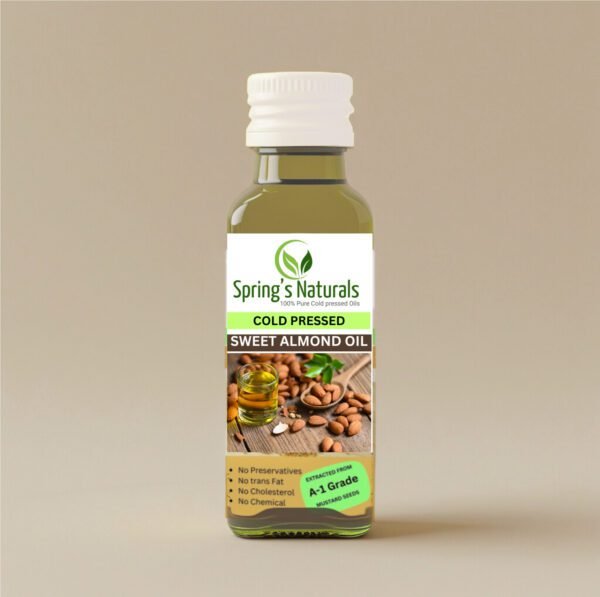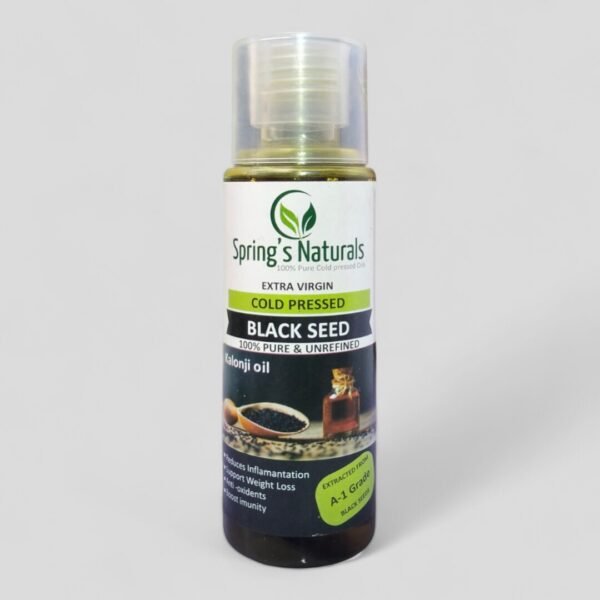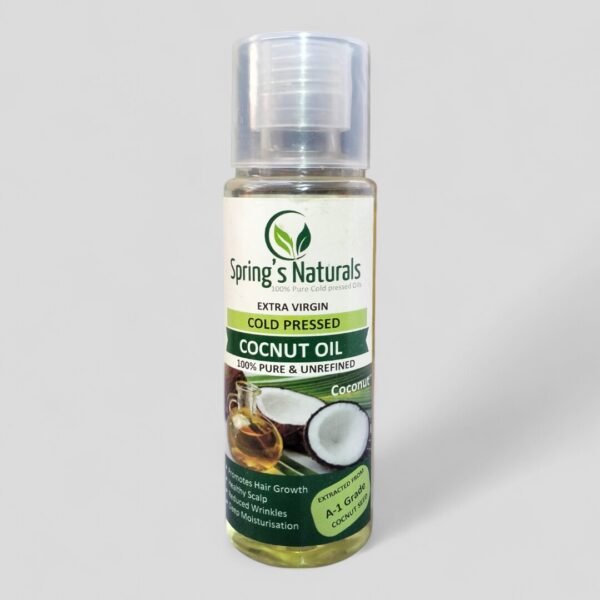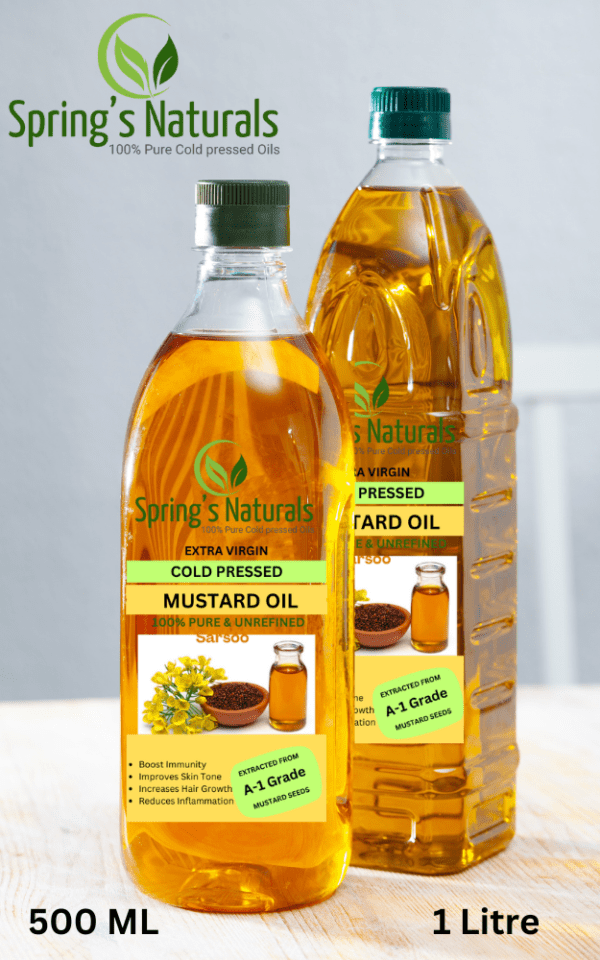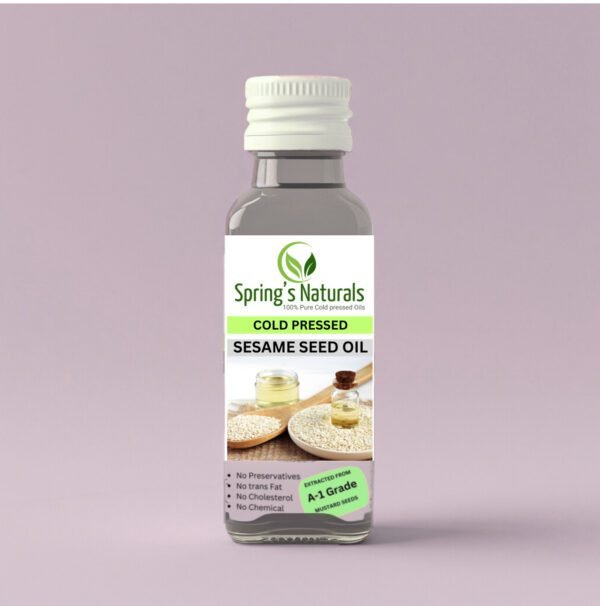Table of Contents
Introduction to Sesame Seed Oil
Sesame seed oil, derived from the seeds of the Sesamum indicum plant, is a culinary treasure cherished across various cultures, particularly in South Asian cuisines. The origins of sesame seed cultivation can be traced back over 4,000 years, making it one of humanity’s oldest oilseed crops. Its production involves a meticulous process of extraction, primarily through cold-pressing, which preserves its nutritional value and distinct flavor. In many regions, the oil is extracted using traditional methods, highlighting the deep-rooted appreciation for this ingredient in everyday cooking.
Rich in both flavor and nutritional benefits, sesame seed oil boasts a high content of unsaturated fats, including omega-3 and omega-6 fatty acids. Additionally, it is a source of essential vitamins and minerals, including vitamin E, calcium, and magnesium, which contribute to its prominence not only in the kitchen but also in health and wellness practices. The oil’s unique profile is complemented by its high smoke point, making it suitable for various cooking techniques, from frying to sautéing, without losing its nutritional integrity.
The significance of sesame seeds extends beyond their culinary value; they hold cultural importance in various traditions. For instance, in many Asian cultures, sesame seeds symbolize wealth and prosperity and are often utilized in rituals and celebrations. Their historical use in medicinal preparations reflects the oil’s reputation as a tonic for health, being associated with numerous health benefits ranging from skin care to digestive health. In Pakistani households, sesame seed oil is favored not only for its culinary versatility but also for its cultural resonance, bridging the gap between ancient practices and modern dietary needs. Understanding the remarkable journey of sesame seed oil enhances its appreciation in contemporary culinary practices and daily life.
Culinary Uses of Sesame Seed Oil in Pakistan
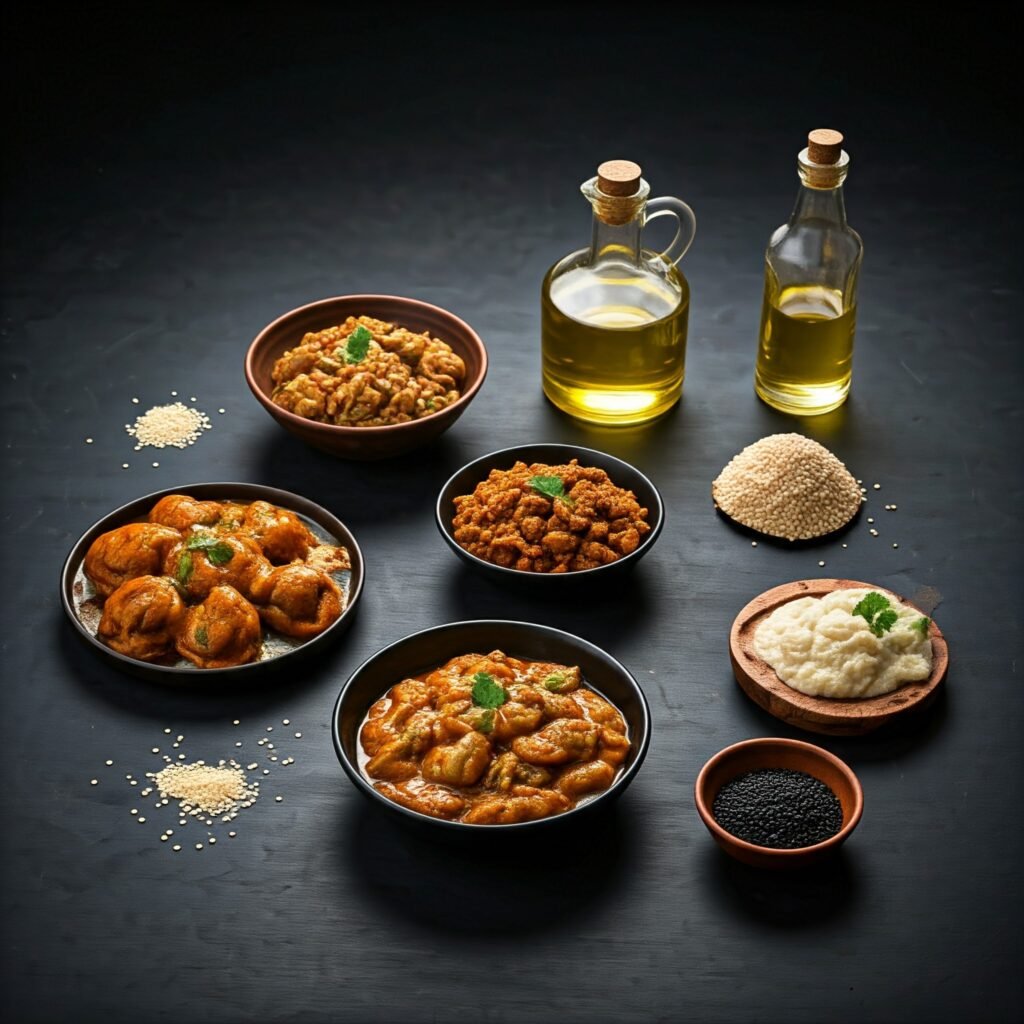
Sesame seed oil, known locally as “til ka tel,” holds a significant place in Pakistani cuisine, celebrated for its rich flavor and multiple health benefits. This oil is predominantly used in various cooking methods, including frying, sautéing, and as a dressing, making it an essential ingredient in many households throughout the region. In traditional Pakistani cooking, sesame oil enhances the taste of numerous dishes while simultaneously providing nutritional value.
One prominent method of utilizing sesame oil is in frying. Its high smoke point makes it ideal for preparing popular fried appetizers such as “samosas” and “pakoras,” where it contributes to the crispiness of the exterior while infusing the filling with its distinct flavor. In addition, many regional dishes incorporate sautéing vegetables and meat with sesame oil, allowing the oil’s nuttiness to permeate the ingredients and elevate their overall taste. For example, the use of sesame oil in “bhuna gosht,” a slow-cooked meat dish, adds depth and a delectable aroma.
Sesame seed oil is also embraced as a salad dressing, imparting a toasty flavor that complements fresh vegetables, especially in the hot and spicy salads typical to Pakistani meals. The oil’s versatility extends to the preparation of various condiments, including traditional sauces such as “chutneys,” where it enhances both flavor and nutrient absorption. Health-conscious families have increasingly recognized sesame oil’s health benefits, including its richness in antioxidants and beneficial fatty acids, further solidifying its role in everyday cooking.
Despite its widespread use, region-specific preferences exist for sesame seed oil. For instance, certain northern regions may emphasize its use in sweets and desserts, while southern areas may incorporate it more prominently in savory dishes. Ultimately, sesame seed oil not only enriches the flavors in Pakistani cuisine but also contributes to healthier cooking practices, making it a beloved staple in many kitchens across the country.
Health Benefits of Sesame Seed Oil
Sesame seed oil, derived from the small seeds of the Sesamum indicum plant, has been revered in various cultures, particularly in Pakistan, for its numerous health benefits. This oil is rich in essential fatty acids, particularly omega-3 and omega-6, which are crucial for maintaining cardiovascular health. Regular consumption of sesame seed oil can help lower cholesterol levels, thereby reducing the risk of heart disease. Its anti-inflammatory properties also play a role in promoting overall heart health, making it a valuable addition to the diet.
Bestsellers
Almond Oil (روغن بادام شیریں) Cold Pressed 50 ML
Original price was: ₨ 799.₨ 599Current price is: ₨ 599.Black Seed Oil | Cold Pressed 120 ML
Original price was: ₨ 749.₨ 520Current price is: ₨ 520.Coconut Oil | Cold Pressed 120 ML
Original price was: ₨ 499.₨ 399Current price is: ₨ 399.Cold Pressed Blackseed Oil (روغن کلونجی) 30 ML | Kalonji Oil Pakistan
Original price was: ₨ 399.₨ 299Current price is: ₨ 299.Cold Pressed Mustard Oil (Sarson ka Tail) Extra Virgin | Pure & Chemical-Free | Springs Naturals Pakistan
Price range: ₨ 499 through ₨ 999Cold Pressed Sesame Seed Oil (روغن تل) 50ml | Pure, Organic & Chemical-Free | Springs Naturals Pakistan
Original price was: ₨ 449.₨ 299Current price is: ₨ 299.
Beyond cardiovascular advantages, sesame seed oil is packed with antioxidants such as sesamol and sesamin, which combat oxidative stress in the body. These antioxidants are known to protect cells from damage, potentially lowering the risk of chronic diseases. The vitamins found in sesame seed oil, including vitamin E and several B vitamins, contribute to the oil’s reputation as a holistic health booster. Vitamin E, in particular, is vital for skin health, providing moisture and preventing premature aging, while also assisting in the healing of minor cuts and wounds.
Skincare enthusiasts often incorporate sesame seed oil into their routines due to its ability to nourish the skin deeply, enhancing its elasticity and radiance. Furthermore, its application is not limited to skin health; the oil is also beneficial for hair care. It acts as a natural conditioner, promoting hair strength and shine while potentially reducing hair loss and dandruff.
From a traditional perspective, many in Pakistan hold sesame seed oil in high regard for its medicinal properties. It is believed to aid digestion, mitigate constipation, and improve immunity, contributing to overall wellness. The historical use of this versatile oil in medicinal practices underscores its significant role in promoting health and vitality in everyday life. As such, incorporating sesame seed oil into daily routines can provide multifaceted health benefits that support both physical and emotional well-being.
Everyday Uses of Sesame Seed Oil Beyond Cooking
Sesame seed oil, known for its rich flavor profile in culinary applications, also serves a multifaceted role in daily life that extends far beyond the kitchen. Its versatility makes it a valuable addition to personal care routines, with skincare and haircare being the most prominent areas where it is utilized. This oil is renowned for its moisturizing and nourishing properties, making it an ideal choice for individuals seeking to enhance their overall skin health. The oil is rich in essential fatty acids and vitamins, which aid in maintaining skin elasticity and preventing dryness, thus making it a popular ingredient in various skincare products.
In haircare, sesame seed oil is celebrated for its ability to strengthen hair strands and promote scalp health. By massaging the oil into the scalp, individuals can stimulate circulation and potentially reduce hair loss. Its nourishing qualities help in combating dryness and frizz, leading to smoother, healthier hair. Many traditional beauty regimens in Pakistan incorporate sesame seed oil, highlighting its essential role in maintaining beauty and wellness.
Moreover, sesame seed oil holds a significant place in traditional medicinal practices. It is often employed in massage therapy due to its warming effect and ability to penetrate the skin effectively. When used in conjunction with techniques like aromatherapy, it fosters relaxation and alleviates stress. The calming aroma and the oil’s therapeutic properties contribute to a holistic approach to health and wellbeing. In this context, sesame seed oil is not merely an ingredient, but rather a pivotal element intertwined with the cultural practices surrounding health in Pakistan. Its applications encompass both physical and emotional wellness, showcasing its integral presence in everyday life.
next article 10 Amazing Cold Pressed Almond Oil Benefits for Daily Life
Can we apply cold-pressed sesame oil on the face?
Use sesame oil as a facial moisturizer in place of your regular moisturizer for deep hydration and nourishment. Mix a few drops of sesame oil with your regular body lotion or use it directly on the skin for a moisturizing and anti-aging effect. You can also use sesame oil as a natural makeup remover. reference
Is cold-pressed sesame oil good for hair growth?
Sesame oil stimulates blood circulation on the scalp promoting hair growth. In addition, it’s rich in omega-3 and omega-6. Research shows that a deficiency in these fatty acids impacts hair loss. If hiding thinning hairor hair loss is a concern, sesame oil can help. ref
Why is cold pressed oil expensive?
Authentic cold-pressed oils often exhibit a subtle nutty or grassy flavor, a testament to their unrefined nature. The labor-intensive process of cold-pressing results in lower yields, which can contribute to a higher price point compared to other oils.

